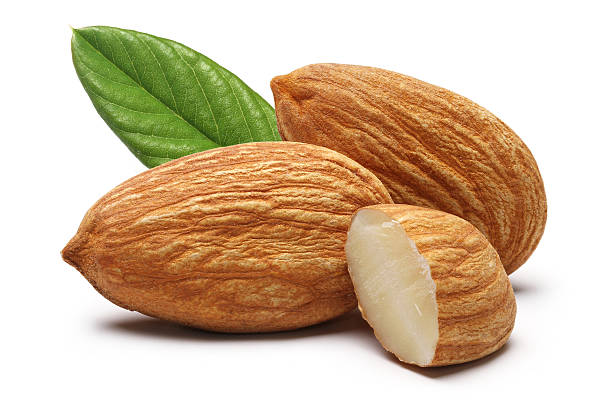
Modern life normalizes alcohol at every turn. Social events, celebrations, stress relief, even quiet evenings at home often come with a glass in hand. For many people, drinking feels less like a choice and more like a default. Yet an increasing number of people are choosing to step away from alcohol altogether. Some quit for health reasons, some for clarity of mind, and others simply to break the habit of dependence. What surprises most is that not drinking carries its own set of side effects. They are rarely negative, though the body and mind can react in unexpected ways. Understanding these changes is important for anyone considering a life without alcohol.
The first and most immediate side effect is detox adjustment. For someone who has consumed alcohol regularly, even moderate amounts, the body has grown used to processing ethanol. The liver works harder than it should, the nervous system adapts to frequent depressant effects, and the brain balances itself around chemical interference. When drinking stops, the body rebalances. This can trigger short-term discomfort such as headaches, irritability, or disrupted sleep. In heavy drinkers, withdrawal can be more severe and requires medical supervision. For moderate drinkers, the side effects are usually temporary and fade within weeks as the body learns to function without constant alcohol in the system.
Once the adjustment phase passes, energy levels become one of the most noticeable changes. Alcohol is a depressant. It slows reactions, drains stamina, and interferes with restorative sleep cycles. Many people who stop drinking notice a dramatic increase in energy. Mornings become easier, afternoons less sluggish, and workouts more productive. The body no longer has to repair itself from the micro damage caused by drinking. This side effect of not drinking often surprises people who believed their fatigue was only due to stress or age.
Another major shift is in mental clarity. Alcohol fogs thinking even when consumed in small amounts. Regular drinkers often normalize this mild fog, assuming it is just how their brain feels. When drinking stops, focus sharpens. Tasks that once felt draining seem easier. Memory improves. Creative thinking flows more smoothly. The mind feels cleaner, less weighed down. For students, professionals, or creatives, this side effect alone can be worth the decision to quit.
Not drinking also affects emotional balance. Alcohol numbs feelings but it does not remove them. Stress, sadness, or anxiety simply wait beneath the surface. Without alcohol, emotions rise more honestly. At first this can feel uncomfortable. A person may notice they are quicker to feel frustration or sadness. But over time, emotional regulation strengthens. Instead of drowning feelings in alcohol, the mind learns healthier coping strategies. Many people who quit drinking report less anxiety in the long run, greater emotional resilience, and a deeper sense of stability. Relationships often benefit as communication becomes more honest and less clouded by alcohol’s distortions.
Physical health improvements are among the most celebrated side effects of not drinking. The liver begins repairing itself. Fatty deposits reduce. Skin clears up as hydration levels improve and toxins are filtered more efficiently. Weight often drops because alcohol is calorie dense and disrupts metabolism. Blood pressure lowers. Risk of heart disease, cancer, and diabetes decreases. For women, hormone balance often improves. For men, testosterone levels rise, boosting energy and focus. These effects build slowly but they are significant. A year without alcohol can transform overall health in measurable ways.
Sleep is another area with dramatic change. While alcohol can make people fall asleep faster, it actually disrupts the quality of sleep by interfering with REM cycles. This is why drinkers often wake up tired even after a full night in bed. When alcohol is removed, sleep may feel restless at first, especially in the detox period. But soon sleep deepens, becomes more restorative, and mornings feel truly refreshing. Restful sleep has ripple effects throughout health, from stronger immunity to better mood regulation.
Social side effects also deserve attention. For many, drinking is tied to identity and belonging. When someone stops drinking, they may feel socially awkward at first. Friends may pressure them, question them, or even pull away. This can feel like a negative side effect, but in truth it clarifies which relationships are genuine and which are shallow. Over time, many people build stronger social connections based on shared interests rather than shared intoxication. New communities open up, from fitness groups to sober events. The side effect here is a shift in social circles, often for the better.
Financial changes are another overlooked side effect. Alcohol is expensive, especially in bars, restaurants, and events. Even moderate drinkers spend hundreds or thousands a year on drinks. When drinking stops, that money stays in the pocket. People often find they can travel more, save faster, or invest in things they truly value. The financial relief adds to the sense of control and independence that comes with sobriety.
An unexpected side effect is time gain. Drinking consumes more time than most realize. There are the hours spent drinking, the slow mornings after, and the days lost to hangovers. When alcohol leaves the schedule, free time expands. People pick up new hobbies, exercise more, or simply enjoy life without constant fatigue. The lifestyle feels more open and flexible.
Confidence is another psychological shift. Alcohol gives a false sense of courage in social settings. Without it, people may feel nervous at first. But gradually, authentic confidence develops. This type of confidence is deeper, because it is not dependent on a chemical crutch. Speaking clearly, remembering conversations, and being fully present lead to stronger personal impact. For many, this side effect turns out to be empowering rather than limiting.
There are also spiritual or existential side effects for some. Without alcohol dulling awareness, people often confront their real desires, fears, and goals. This can trigger life changes. Careers are reconsidered, relationships reevaluated, and personal values redefined. Not everyone experiences this, but for those who do, it can be one of the most transformative effects of living sober.
One of the final but most important side effects is longevity. Alcohol shortens life expectancy through disease, accidents, and long-term wear on the body. Removing it adds years of health and vitality. While this side effect is less immediate, it is perhaps the most valuable. Time is the one resource no one can buy back, and not drinking secures more of it.
The side effects of not drinking are real and varied. Some are temporary discomforts like withdrawal or emotional adjustment. Others are long lasting benefits like health, wealth, and deeper confidence. While quitting alcohol may seem like sacrifice, the side effects prove otherwise. A body that heals, a mind that clears, a life that feels richer without intoxication. What begins as an experiment often becomes a permanent choice, because the gains are too significant to ignore.









Comments (0)